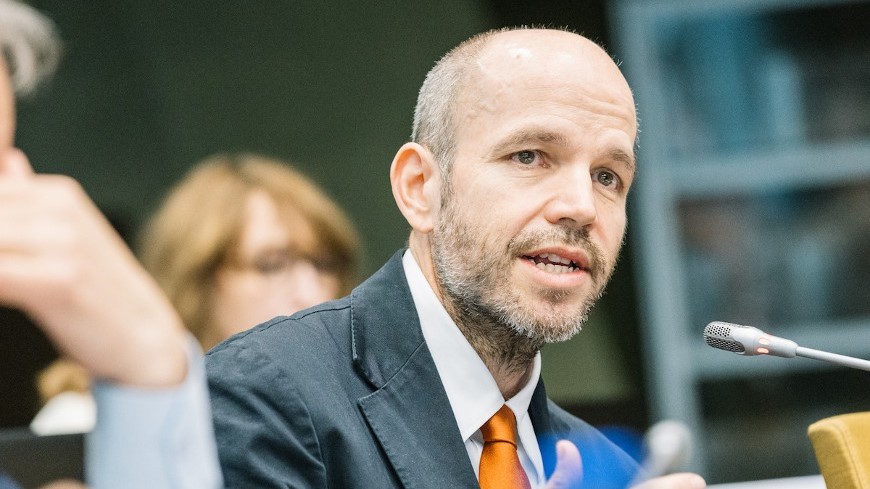Radim Srsen: “people should be encouraged to stay in rural areas or return to them”
The problem is a familiar one: public services in peripheral and rural areas with declining populations deteriorate or disappear, prompting still more inhabitants to leave in turn. This vicious circle can only be broken through effective decentralisation enabling the balance between regions to be restored and making them attractive again, concluded the participants in the debate held on 27 March in the Chamber of Regions on the “exodus of services of general interest from peripheral and rural areas”.
Enrique Garcilazo, the Head of the OECD’s Regional and Rural Policy Unit, said that 40% of isolated or peripheral areas had seen a decline in their population and that, of these, 60% were a long way from major cities. The trend had slowed in recent years but had picked up again since the Covid crisis and the war in Ukraine, particularly as a result of the return of inflation. All these indicators showed that the rift was widening, an example being the quality of bandwidth, which was improving in cities but deteriorating elsewhere. This increased the digital gap between urban and rural areas, with impacts in terms of jobs and the economy. These imbalances were also seen in the area of health and education facilities and called, in Mr Garcilazo’s view, for long-term spatial planning, between now and 2060 and beyond, catering harmoniously for both rural and urban areas.
Languages, cultures, identity: rural areas are the soles of nations
Viorel Furdui, Moldova’s Director General of Local Authorities and a local councillor himself, emphasised how important public services were for rural communities and considered that rural areas and small municipalities were worth saving, in particular because, through their language, culture and identity, they were the “sole of nations”. It was important to avoid radical and poorly prepared town planning reforms and instead to encourage co-operation between municipalities to identify their needs. Decentralisation was a key factor but so was the involvement of associations of municipalities and local councillors.
Radim Srsen, the Czech Deputy Minister of Regional Development, said that peripheral areas needed to become attractive again, particularly for young people, because retaining them or making them return was the key to development. Owing in particular to digital infrastructure, there was already a noticeable trend in some countries such as South Korea for young people to move back from the cities to rural areas. Telemedicine and telework were successful initiatives which prompted inhabitants to return to areas prone to depopulation.
Young people were often the main protagonists of the rural exodus, according to the young Spanish delegate, Maria Virginia Iliata: “many think that they cannot make a living in these isolated areas” she explained, regretting that living far from cities often meant putting up with highly inadequate transport infrastructure and accepting the prospect of unemployment. In Castilla-la-Mancha for example, over 20% of young people were unemployed. Of course, telework could improve things but there was also a more general need to give young people the means of finding a future where they came from.
Many young people were forced to leave their homes, especially for their studies, whereas better planning would help to avoid such departures. The young Armenian delegate, Taisya Hovhannisyan, regretted that Armenia’s main universities were concentrated in the capital, Yerevan. For most young people, the cost of living there was unaffordable, and this prevented many from accessing higher education, whereas they could if facilities were closer to home.
Highlighting the benefits of peripheral and rural areas
Markus Gleichmann (Germany, R, SOC/G/PD) considered that “the drawbacks of rural areas had to be converted into assets”, including where it came to installing the energies of the future, such as solar panels or biogas, which would also be of benefit to the local economy. Peripheral areas also had advantages which the inhabitants of the main conurbations were unaware of: “my region, Frisia, is far less wealthy than the rest of the country”, said Eke Folferts (Netherlands, R, EPP/CCE), “but it is where people are happiest, thanks in particular to its strong social cohesion”. Campaigning by local inhabitants could also help local authorities save facilities, such as the school rescued by the locals and now attracting new pupils in the district in which Rachel Bailey (United Kingdom, R, ECR) was councillor.
***




